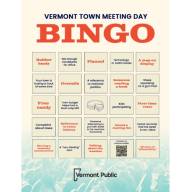The Vermont Legislature’s Education Committee is working on a bill that would require that schools provide students with two meals a day at no charge.
At the beginning of the COVID-19 pandemic, the federal government provided funding for all students to receive two meals a day at school. That program was enormously successful in keeping students throughout the state fed during the peak of the pandemic. Meals were provided to every child 18 and under.
This program expires in June. Food insecurity does not expire in June.
Cathy Davis, Jericho, board president of Hunger Free Vermont, argued in a recent op-ed piece that free meals for Vermont students will benefit the state’s economy and business community and Vermont families.
Removing the task of remembering to pack lunches or recharge lunch accounts lifts a burden on families. When all kids in all schools get two meals a day, it erases the stigma between those who need them and those who don’t. It’s just part of school.
Kids who are well-nourished are better able to concentrate and learn. This sets them up for success throughout their primary education and is reason enough to make universal school meals free. It also sets them up for success in life – another reason for universal free school meals.
Davis makes another valid point in her op-ed. She writes that “by empowering them to sit in class without hunger pangs and brain fog, we are helping them succeed in their studies and to eventually join -- and lead -- Vermont’s workforce.”
She also points out that business owners are better able to recruit workers if potential employees know their kids will get a great education, and they will be fed and focused because schools provide healthy meals. “These meals -- which include many local foods -- are available to every student, every day, would make a difference for our businesses,” Davis wrote.
We’ve already seen locally and throughout the state that supporting local food vendors, growers and makers supports those businesses which is good for our economy and is good for our carbon footprints and for our health.











